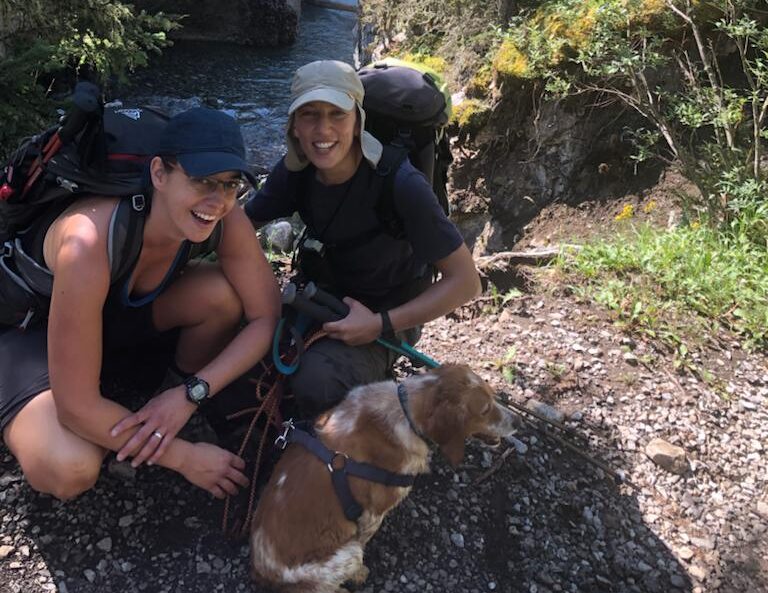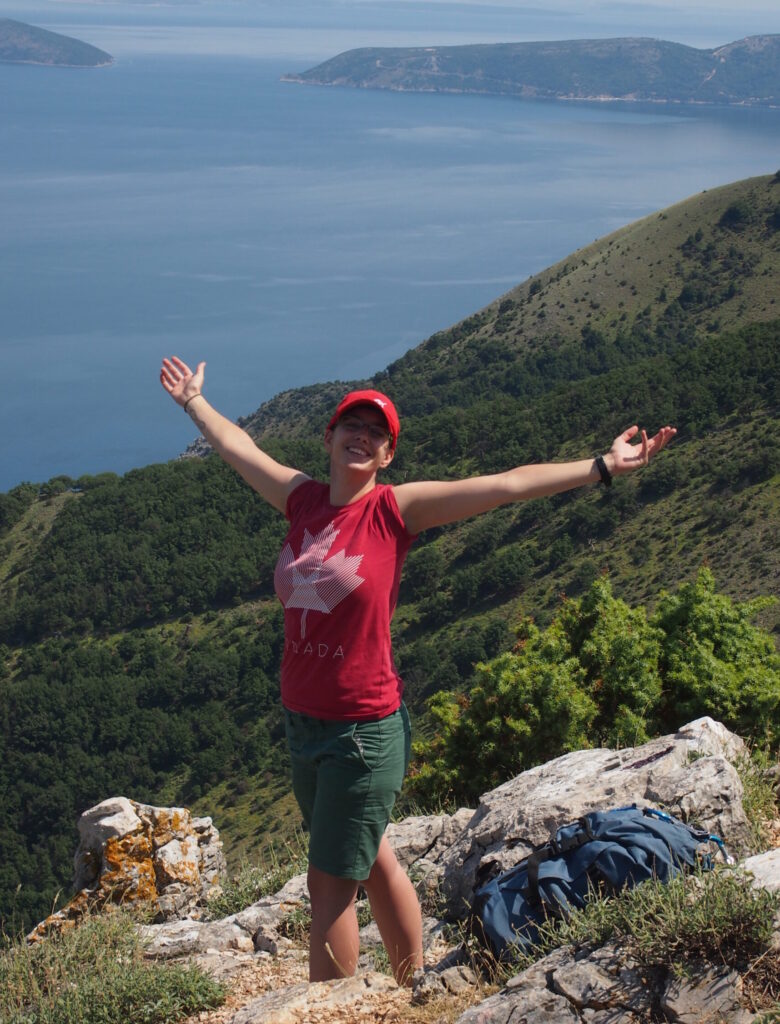Immigrating to Calgary allowed me to be openly gay—but our city needs more spaces for LGBTQ+ Calgarians
By Tihana Radojcic

It was June 11, 2014, and I had just landed in Calgary—my new home.
The Calgary International Airport was everything that I had not imagined. The Arrivals terminal was windowless and uninviting, and agile seniors wearing oversized white hats smiled at me like I was a celebrity. Their happiness was strange but contagious.
As I dragged my torn luggage down the quiet, long corridor, I chatted with one of the seniors. He wanted to know if this was my first time in Calgary, and where I came from.
“Croatia,” I said. Then, in case he hadn’t watched Game of Thrones: “A little country next to Italy.”
“Why would you ever move to this cold, cold city?” he asked.
I didn’t know what to say, and I wanted to say so many things. I settled with, “I prefer the cold.”
When I walked to the intimidating Immigration and Customs desk, I was asked the same question two more times. Each time I had a different explanation for my leaving.
At some point, I stopped making up reasons. It took me three months to get there.
I was out with my immigrant friend, as we called each other affectionately, and celebrating Pride Week. The city was not coloured in rainbows, as I had envisioned all Canadian cities would be by default.
Someone overheard us speaking Croatian and asked where we were from. The same follow-up questions were asked, but my answer was different this time.
“Croatia is beautiful, and it has the best football players in the world,” I said, a little icebreaker before the seriousness kicked in. “But it also does not love its gays and lesbians.”
It felt so good to say that. The person I was speaking with likely felt the same, because what Calgarian wouldn’t after you tell them that their city is better than King’s Landing?
I love Croatia, but Croatia never truly loved me
The truth is that I left Croatia because Croatia never truly loved me. Sadly, this is also true for many of my friends who now live in Germany, Ireland, the U.S., and Canada.
I came out as gay a long time ago. I think I was five when I first realized that that girl from kindergarten had beautiful eyes. As years passed by, I was more in tune with my identity even though the environment around me was hostile.
By the end of my high school, I came out to myself. Soon enough, I became an activist.
I was outspoken about gay rights wherever I went, be it the youth centres where I volunteered or the newsrooms where I worked as a journalist. I was vocal at home, too, where I cautiously educated my family, or over a coffee with my friend who “always sensed I was gay.”

Being gay in Croatia can be a wonderful experience—if you are not out. Or if you are in denial that the country is gay-friendly because the national TV broadcasts Eurovision, where fans wave the rainbow flag.
I was also in denial for many years. My breaking point was the referendum to change the constitutional definition of marriage to a traditional one, between a man and a woman. My small-but-feisty activist group fought hard against the referendum.
We lost. Almost overnight, things changed. I no longer felt safe holding hands or speaking loudly about gay rights or women’s rights. I stopped going to football games that I loved because the insults against my community became unbearable.
I stopped going to family gatherings, I switched jobs, and I withdrew.
For some, Croatia remained as it was. For others, it became a scary place.
It became so scary that many started to avoid public spaces, and ultimately made the decision to leave the country. I was among them. As were four of my friends, who were not even gay—but still, they left.
They left because they knew there was more to life than fighting for your own rights—or the rights of your friends and loved ones—to simply exist, something which should have been guaranteed by law.
Where the rainbow crosswalk washes away
My existence is guaranteed by law in Calgary. My wife and I have a rainbow flag in front of our house. Something I still wouldn’t dare to wave in my hometown of Zagreb, the capital of Croatia.
During Halloween, kids in our street shout that they want to go to the “rainbow house.” The other day, a neighbour wished us a happy Pride Month. We live in a typical blue-collar neighbourhood—one nobody would consider to be gay-friendly if you only believed in stereotypes.
In fact, in Calgary, there is nothing of substance to tell you that this is a gay-friendly city.
A rainbow crosswalk here and there does the trick but only aesthetically, and before the rain or snow washes it away. Rainbow banners in Kensington may make you think that this is where all the fun is. But it really isn’t.
My city has no gay street, gay village, gay district, or even a café as a safe space for all the queers out there to connect and be happy together.
As a gay immigrant to the city, I have no place to meet my community unless I join a non-governmental organization that offers a peer support program or similar.
A teller at Dollarama recently asked my wife and me if we feel safe in Calgary because she knows that Canada still has a way to go.
Canada does have a way to go. Calgary even more so.
The city used to have a dozen gay and lesbian bars. It had an unofficial gay district and many prominent public figures who blazed the trail for me, so that I can wave that flag in front of my house without the fear of waking up with graffiti on the siding of my home.
Today, Calgary’s Pride festival is one of the fastest-growing celebrations in Canada. This is also the birthplace of Tegan and Sara, and a home to k.d. Lang.
But gay people need spaces to exist and share community, and it’s about time Calgary shows its true colours.
About the Author
Tihana Radojcic moved to Calgary from her Croatian hometown of Zagreb in 2014 as a temporary foreign worker. She is a human rights activist and a freelance writer. She currently works as an interim manager at Immigrant Services Calgary.
Read More Newcomer Stories
💙Be inspired by the real-life journeys of newcomers
